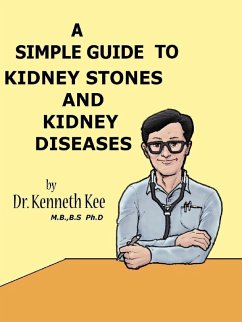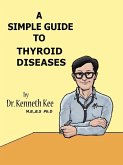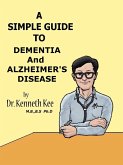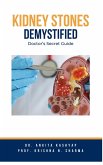Urinary Stones are formed usually because of the accumulation of salts and minerals especially calcium in the urine.
Usually the stones may be so small that they pass out through the urine without the knowledge of the patient.
Some however become bigger due to accumulation of the salts and minerals and the concentration of the urine.
The bigger stones may remain in the tubes of the kidney and are called renal stones.
Some smaller stones may move out of the kidney and passes through the ureters which are the tubes bringing urine from the kidney to your bladder. These are called ureteric stones.
If a ureteric stone gets stuck in the ureter, this can cause blockage of the urine and severe pain.(ureteric colic)
Different kinds of Urinary stones form from different salts in the urine.
1. Calcium stones forms about 80% of the urinary stones.
50% are made up of calcium oxalate and the rest are calcium phosphate.
They are spiky or large and smooth
2. Uric acid stones are caused by accumulation of excess amounts of uric acid which can be due to eating a lot of meat.
They are smooth, brown and soft
3. Struvite stones (infection stones) are produced when there is too much ammonia in the urine occurring especially in urinary tract infection.
The bacteria that cause these urinary infections can generate ammonia.
They are usually large and have a horn-like shape
This kind of kidney stone is most often found in women.
4. Cystine stones occur when there are high levels of cystine in the urine.
A hereditary disorder called cystinuria is the source of high cystine in the urine.
They are yellow and crystalline
Who is at risk of Urinary stones formation?
Risk factors include:
1. Men get urinary stone more commonly than women
2. a previous history of kidney stone - 50% will develop another one within five years.
3. a family history of kidney stones
4. Age between 20 and 40
5. Not drinking enough water
6. eating a diet high in protein
7. taking certain medicines such as diuretics (water tablets), antacids and thyroid medications
8. having only one kidney, or an abnormally shaped kidney
What causes Urinary Stones?
Urinary Stones are caused by 4 main factors:
1. Insufficient water in the urine leading to concentration and stagnation of urine flow:
a. Insufficient intake of water
b. Intake of alcohol causing concentration of the blood volume
2. Excess Urinary Constituents:
a. Calcium:
High calcium intake (includes calcium tablets and high calcium milk)
Primary Hyperparathyroidism leading to high blood calcium
High Vitamin D intake cause high adsorption of calcium
Medical conditions such as cancer, some kidney diseases, or sarcoidosis are more likely to develop calcium stones.
b. Oxalates:
High oxalate intake (cabbage, spinach, tomatoes, chocolates) in diet leads to high concentration of oxalates in urine
c. Uric Acid:
Gout or High Uric Acid can form crystals which may lead to stones
Treatments such as chemotherapy can also increase the risk of getting uric acid stones.
d: Cystine:
Hereditary cystinuria leads to high cystine in the urine and formation of cystine stones
About one in a hundred urinary stones are due to this illness.
Cystine stones tend to appear earlier in life between the ages of 10 and 30 years.
3. Infection of urine:
Clumps of bacteria can form the nucleus of the stone.
Bacteria also produce ammonia which can promote formation of stones
...
Dieser Download kann aus rechtlichen Gründen nur mit Rechnungsadresse in A, B, CY, CZ, D, DK, EW, E, FIN, F, GR, H, IRL, I, LT, L, LR, M, NL, PL, P, R, S, SLO, SK ausgeliefert werden.









